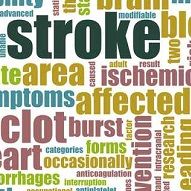IV Clot-Busting OK for Frail Elderly After Stroke, Study Finds
Patient who need assistance with daily living are generally considered too frail and to have too high a bleeding risk to get intravenous thrombolysis (IVT) after they have had an ischemic stroke. According to Swiss researchers, that is not the case.

Patients who need assistance with daily living are generally considered too frail and to have too high a bleeding risk to get intravenous thrombolysis (IVT) after they have had an ischemic stroke.
According to Swiss researchers, that is not the case.
A multicenter European study found that these patients did just as well as more independent patients when it came to benefiting from IVT treatment.
“These findings prove that randomized-controlled IVT trials should be considered for such patients,” said Henrik Gensicke, MD, lead author and a neurologist in the department of neurology at the University Hospital Basel, in Basel, Switzerland.
Among 7,430 IVT-treated patients in 12 European stroke centers, 6.6 percent were “dependent”, defined as unable to live alone without help from another person. Such patients are usually excluded from clinical trials of clot-busting therapies.
Researchers measured their degree of disability at three months after a stroke, defined as not getting back to the fitness level they had before the stroke.
Among three-months survivors, the proportion of dependent patients with poor outcome did not differ from patients who were judged “independent.”
The authors said these dependent patients’ risk may not be as high as most physicians and researchers assume and that they should have access to IVT therapy, or at least be included in trials of such drugs.
The study is described online on the American Heart Association’s site.